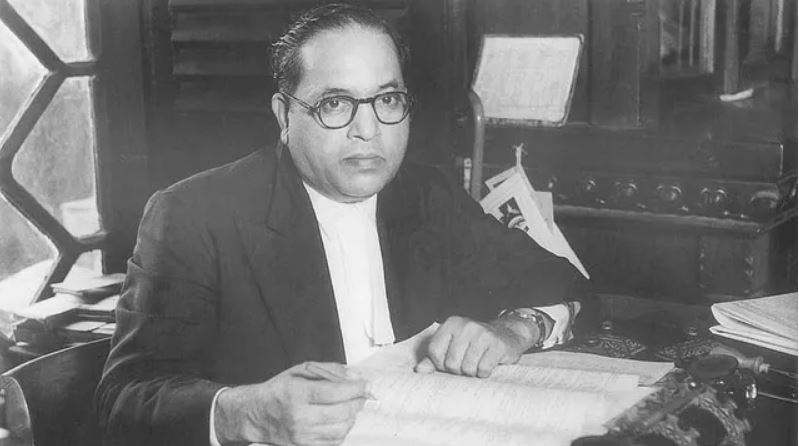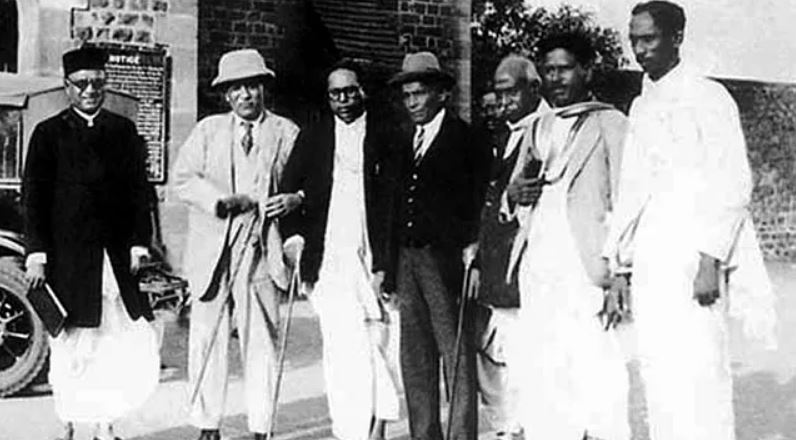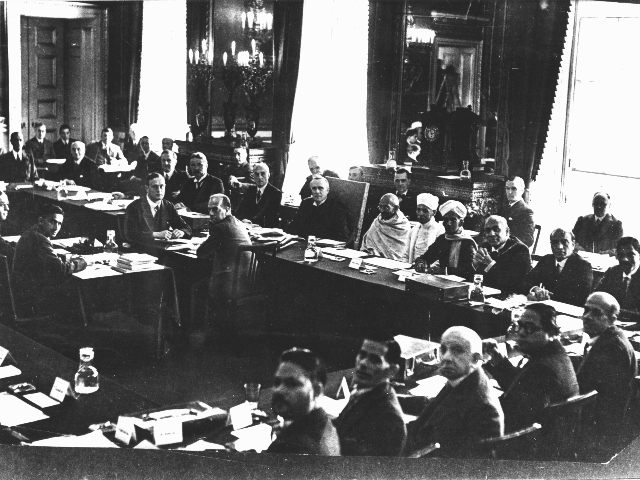He was a jurist, political thinker par excellence, and a maverick reformer

The Poona Pact and a coercive fast
Three Roundtable Conferences were held between 1930 and 1932 by the British Government to discuss constitutional reforms in India, with the ever growing demands of self-rule. Dr Ambedkar had proposed the idea for a separate electorate for Dalits and untouchables in the first conference, which the Congress boycotted. After the Gandhi-Irwin pact, Mohandas Karamchand Gandhi was appointed the only representative of the Congress at the second conference. He vehemently opposed the idea of a separate electorate.
In a letter to Prime Minister Ramsay MacDonald in September 1932, Gandhi wrote:
'In the establishment of separate electorates at all for the ‘depressed classes’, I sense the injection of poison that is calculated to destroy Hinduism.'
In what has come to be known as the Lucknow Pact, the Indian National Congress and the Muslim League decided to persuade the British government to draw a more liberal policy for India, especially one that safeguarded the rights of Muslims. The decision was taken at the joint session of both the parties, held in Lucknow in 1916. One of the proposals adopted demanded that there should be separate electorates for all communities until they ask for a joint electorate.
Prime Minister Narendra Modi's lockdown extension announcement coincided with Dr Babasaheb Ambedkar’s 129th birth anniversary. Modi invoked the dreams and legacy of the “architect of the Indian constitution”, saying, “I am well aware of the problems you have faced – some for food, some for movement from place to place, and others for staying away from homes and families. However, for the sake of your country, you are fulfilling your duties like a disciplined soldier. This is the power of ‘We, the People of India’ that our Constitution talks about.”
Dr Ambedkar was a jurist, political thinker par excellence, and a maverick reformer. He single-handedly worked towards the emancipation of dalits and instilled them with a progressive politics of self determination. While Gandhi's view of the Harijans (a term he used for dalits and untouchables) as being essentially Hindus (though for centuries oppressed, tortured and pushed to the margins by Hindu religious orthodoxy), Ambedkar completely shunned all semblances of 'essential Hinduism' for dalits. In Buddha and Karl Marx, Ambedkar noted that a social revolution should precede any political or cultural revolution in India, the seeds of which were laid by Buddha in his vision of an egalitarian, equal and just society.
Dr Ambedkar wanted to burn the constitution
Ambedkar is undoubtedly the greatest thinker of our times. Yet he is relegated mostly in textbooks and also popular imagination (predominantly savarna) as just the 'Father or Architect of the Indian constitution', the same epithet Mr Modi used in his speech. While speaking in the Rajya Sabha on 2 September 1953, Dr Ambedkar observed:
'It is by placating the sentiments of smaller communities and smaller people who are afraid that the majority may do wrong, that the British Parliament works. Sir, my friends tell me that I have made the Constitution. But I am quite prepared to say that I shall be the first person to burn it out. I do not want it. It does not suit anybody. But whatever that may be, if our people want to carry on, they must not forget that there are majorities and there are minorities, and they simply cannot ignore the minorities by saying, ‘Oh, no. To recognise you is to harm democracy.’ I should say that the greatest harm will come by injuring the minorities.'
The ‘Father of the Indian constitution’ wanted to burn it. What he told the upper house of the Parliament so many years ago is still the Indian reality – there are minorities and majorities, and the latter still usurp power to feed off the former.
But this great nation of ours has another father. As mentioned earlier, Gandhi's views on dalits were orthodox and conservative. His clash of ideas with Dr Ambedkar ultimately changed the social comportment of this country forever.
There cannot be much debate on how as an electoral democracy, India is definitely not the most successful or just nation-state. In a country rife with caste violence, electoral processes have often been punctuated by upper caste dominance. Would things have been better, or at least different, if Dalits were awarded separate electorates?
On Babasaheb Ambedkar's 129th birth anniversary, one hopes that those in power, those who embody the nation state, stop providing lip service to this dalit intellectual by trying to co-opt him in status quoist narratives. And yes, he is not just the “Architect of the Indian constitution”.
It is important at this point to make the distinction between separate electorate and reserved constituency clear.
Separate Electorate : The community to which the electorate belongs would choose their own leaders via an election in which the candidates of only their community would be allowed to contest and only their community members would vote. This would mean that the elections for choosing the leaders of that particular community would be held separately and would not come under general elections.
Reservation of Seats : The candidates in the election can belong only to a particular community for which it is reserved. However, every eligible voter in the constituency would vote and the leader chosen would represent them all.
In 1932, the British announced the formation of separate electorates for the ‘Depressed Classes’ in the Communal Award. Gandhi was in for a toss. He decided to fast unto death to overturn the decision. On the eve of his now ‘historic’ fast unto death at Yervada Central Jail in Pune, Gandhi wrote to Sir Samuel Hoare, the then Secretary of State for India.
'For me religion is one in essence, but it has many branches and if I, the Hindu branch, fail in my duty to the parent trunk, I am an unworthy follower of that one indivisible, visible religion…. My nationalism and my religion are not exclusive, but inclusive and they must be so consistently with the welfare of life.'
Pressure began mounting on Ambedkar because of this almost ornery fast. The Mahatma’s life depended on what Dr Ambedkar chose. The maverick dalit leader finally conceded to his demands. Years later, Dr Ambedkar would write in What Congress and Gandhi Have Done to the Untouchables:
'There was nothing noble in the fast. It was a foul and filthy act. The Fast was not for the benefit of the Untouchables. It was against them and was the worst form of coercion against a helpless people to give up the constitutional safeguards [which had been awarded to them].'
SOURCE:https://www.telegraphindia.com/culture/babasaheb-dr-br-ambedkar-not-just-architect-of-the-indian-constitution/cid/1764897#





No comments:
Post a Comment